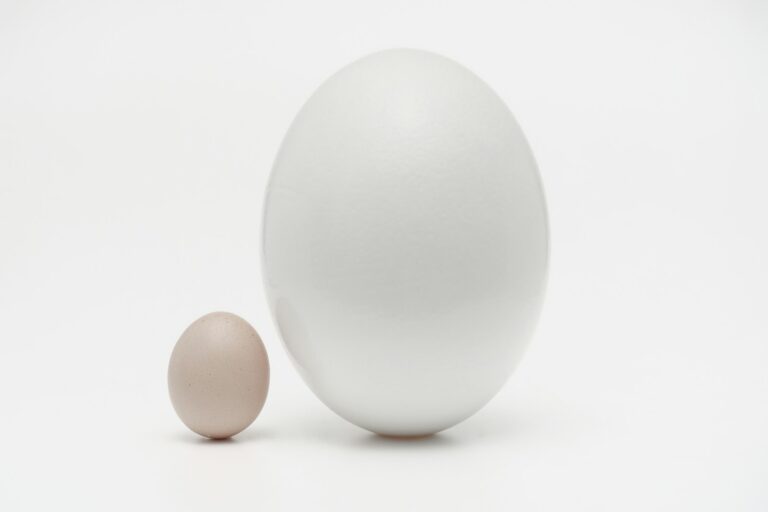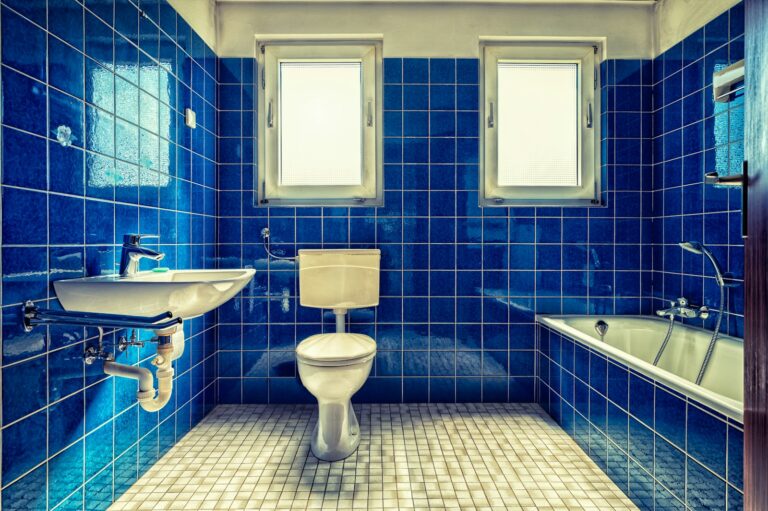How to Say “You Are Gorgeous” in Spanish: A Complete Guide
Imagine you’re on a sun-soaked beach in Spain, the waves gently lapping at your feet. You meet someone who takes your breath away, and you want to let them know just how stunning they are. But how do you say it in Spanish? There’s something magical about expressing admiration in another language—it feels like a secret only the two of you share.
You don’t need to be fluent to make a heartfelt compliment. Whether it’s a friend, a partner, or someone you’ve just met, saying “you’re gorgeous” can light up their day. In Spanish, you might say “eres preciosa” for women or “eres precioso” for men. It’s simple, yet it carries a beautiful weight.
Common Ways to Say “You Are Gorgeous” in Spanish
Ever thought about how wonderful it feels to be told you’re gorgeous in another language? Spanish, with its melodic charm, offers some delightful ways to make someone’s day brighter.
“Eres hermosa/hermoso”
Meaning and Usage
Eres hermosa directly translates to “you are gorgeous.” This phrase is perfect for complimenting someone’s physical beauty. Imagine you’re at a beach in Spain, and you see someone whose beauty takes your breath away. What do you say? Eres hermosa if it’s a woman, Eres hermoso if it’s a man. This phrase can make anyone feel special.
Gender Variations
Spanish, unlike English, tailors compliments based on gender. For women, you’d say Eres hermosa. For men, you’d say Eres hermoso. It’s always good to know the difference, especially when you want to get it just right!
Feminine | Masculine | |
|---|---|---|
You are gorgeous | Eres hermosa | Eres hermoso |
“Estás guapísima/guapísimo”
Difference Between “Ser” and “Estar”
Here’s where Spanish gets a bit tricky but fun. Estás guapísima means “you are looking gorgeous right now.” Use estar to highlight temporary conditions—like how stunning someone looks in that new dress. On the other hand, ser conveys permanent characteristics. So, ser would apply to someone who’s always beautiful, inside and out.
When to Use This Phrase
Use Estás guapísima for women and Estás guapísimo for men when you want to compliment someone’s appearance at a specific moment. Picture meeting someone at a party who looks amazing—here’s your chance to say, Estás guapísima/guapísimo. It shows you notice their current effort to look fantastic, making your compliment timely and thoughtful.
Phrase(English) | Feminine(Spanish) | Masculine(Spanish) |
|---|---|---|
You look gorgeous right now | Estás guapísima | Estás guapísimo |
Alternative Expressions for “You Are Gorgeous”

Ever wanted to tell someone how stunning they are in Spanish but weren’t sure how? There are plenty of ways to express this sentiment, each with its unique flair. Let’s jump into a few beautiful alternatives.
Eres Bellísima/Bellísimo
When you say “Eres bellísima” (for a woman) or “Eres bellísimo” (for a man), you’re emphasizing their unmatched beauty. This phrase takes it up a notch. It’s like saying, “You’re breathtakingly beautiful.” Perfect for moments when someone looks exceptionally attractive. Imagine seeing your friend all dolled up for a special event; telling them they’re bellísima or bellísimo will surely make their day.
Eres Preciosa/Precioso
With “Eres preciosa” for women and “Eres precioso” for men, you’re conveying that the person is as valuable as a precious gem. It’s an elegant compliment, making someone feel cherished and admired. If your partner surprises you on a date looking their best, calling them preciosa or precioso is a charming way to show appreciation.
Estás Radiante
To compliment someone’s glowing appearance, use “Estás radiante”. This phrase highlights their radiant charm and joyous aura. Notice someone beaming with happiness and looking great? Estás radiante perfectly captures that vibrant glow. It’s ideal for those special moments when someone shines from within.
Regional Variations and Preferences
Spanish-speaking countries have their local favorites when it comes to compliments.
Here’s a quick reference to keep things clear:
Country | Male Phrases | Female Phrases |
|---|---|---|
Mexico | Eres guapísimo | Eres guapísima |
Colombia | Eres un papacito | Eres una mamacita |
Contextual Usage of “Gorgeous” Compliments in Spanish

When you’re learning a new language, understanding context can make all the difference, especially with compliments. Speaking Spanish, you’ll find various ways to tell someone they’re gorgeous, each fitting a specific situation. Let’s jump into when and how to use these compliments effectively.
Formal vs. Informal Situations
In formal settings, your compliments need a touch of respect. You’d say “Eres hermoso/a” (You are beautiful) or “Eres guapo/a” (You are handsome/pretty). These phrases work well when addressing someone you don’t know well or in professional environments.
In informal contexts, like when chatting with friends, the language can be more relaxed. Here, phrases such as “Eres increíble” (You are incredible) and “Eres impresionante” (You are impressive) strike the right balance between complimenting and keeping it casual.
Romantic Contexts
Romantic expressions need to be special. In Spanish, you’d tell your significant other “Eres divino/a” (You are divine) or “Eres precioso/a” (You are precious) to make them feel truly cherished. These compliments add a romantic flair that’s perfect for intimate moments.
Platonic Compliments Among Friends
Complimenting friends is a great way to show appreciation without any romantic undertones. Phrases like “Eres genial” (You are great) and “Eres fantástico/a” (You are fantastic) are ideal. These expressions maintain friendship boundaries while making your friend feel valued.
Here’s a quick overview:
Context | Compliments |
|---|---|
Formal Situations | Eres hermoso/a |
Eres guapo/a | |
Informal Situations | Eres increíble |
Eres impresionante | |
Romantic Contexts | Eres divino/a |
Eres precioso/a | |
Platonic Compliments | Eres genial |
Eres fantástico/a |
Each expression has its place. Using the right phrase ensures your compliments are well-received and appropriate for the situation.
Cultural Considerations When Complimenting in Spanish

Complimenting someone in a different language can feel like exploring a minefield of etiquette and culture, but don’t worry. Spanish-speaking cultures have their own charm, and understanding these nuances ensures your compliments land just right.
Frequency of Appearance-Based Compliments
Compliments on appearance pop up often in Spanish-speaking cultures. They’re used not just to flirt but to genuinely admire someone’s looks. You might hear “Eres muy guapo/a” or “Estás muy guapo/a hoy” frequently. People often give these compliments during casual interactions.
Scenario | Common Compliment | Meaning |
|---|---|---|
Greeting a friend | Te ves muy guapo/a | You look very handsome/beautiful |
Meeting someone new | Eres hermoso/a | You are beautiful |
When in Spain or Latin American countries, expect to exchange these pleasantries. Why? Because it’s part of their warmth and friendliness. It’s like giving a little sunshine to someone’s day.
Gender Dynamics in Spanish-Speaking Cultures
In many Spanish-speaking places, men often compliment women, especially in social settings. It’s not unusual for men to call out “¡Guapa!” to women on the street. It’s a blend of cultural flirtation and appreciation. But, you might wonder, “Isn’t that a bit forward?” Well, yes and no. While it’s a norm, it’s essential to remain respectful. There’s a fine line – cross it, and it turns uncomfortable quickly.
Remember, context is key. Complimenting a colleague with “Eres muy guapa” at work might be fine, but shouting it to a stranger? Maybe not. Always gauge the situation and the individual’s comfort level.
Avoiding Potential Misunderstandings
Compliments are nice, but they can backfire if not delivered well. In Spanish-speaking cultures, this is equally true. Misattributing context or tone can lead to awkward situations. For example, using “Eres guapo” might seem straightforward, but in a professional setting, “Eres muy competente” (You are very competent) fits better.
Here’s a quick guide to help:
Context | Safe Compliments | Risky Compliments |
|---|---|---|
Professional Setting | Eres muy competente | Eres muy guapo/a |
Casual Friendships | Te ves genial hoy | Eres hermoso/a |
Romantic Contexts | Eres divino/a | Eres guapísima/guapísimo |
Why all this fuss? Because knowing when, where, and how to compliment makes you a more considerate and thoughtful individual. It enhances your interactions and helps you connect on a deeper level.
Enhancing Your Compliments: Adjectives and Phrases
Complimenting someone in Spanish can be incredibly rewarding if you choose the right words. Let’s jump into various expressions and phrases to make your compliments shine.
“Increíblemente” (Incredibly) and “Absolutamente” (Absolutely)
Using intensifiers like “increíblemente” and “absolutamente” can make your compliments stand out. These words amplify the admiration you’re expressing. Imagine telling someone, “Eres increíblemente hermoso/a” (You are incredibly beautiful). Doesn’t that feel more impactful? Similarly, “Eres absolutamente hermoso/a” (You are absolutely beautiful) gives your compliment an undeniable conviction that simple words often lack.
Specific Feature Compliments (Eyes, Smile, etc.)
Enhancing your compliments by focusing on specific features can make them more personal and heartfelt. For instance, telling someone “Tienes unos ojos increíbles” (You have incredible eyes) draws attention to a specific trait you admire. It can make the person feel seen and appreciated. Another example could be “Tu sonrisa es hermosa” (Your smile is beautiful). This kind of focused compliment often resonates deeper than a general statement.
Metaphorical Expressions of Beauty
Using metaphors can add a poetic touch to your compliments. Telling someone “Eres un rayo de sol” (You are a ray of sunshine) can brighten their day in a way that simple adjectives might not. Similarly, comparing someone to a flower with “Eres una flor hermosa” (You are a beautiful flower) evokes imagery of natural beauty. These expressions often feel unique and special, making the person feel truly cherished.
Spanish Phrase | English Translation |
|---|---|
Eres increíblemente hermoso/a | You are incredibly beautiful |
Eres absolutamente hermoso/a | You are absolutely beautiful |
Tienes unos ojos increíbles | You have incredible eyes |
Tu sonrisa es hermosa | Your smile is beautiful |
Eres un rayo de sol | You are a ray of sunshine |
Eres una flor hermosa | You are a beautiful flower |
Using these phrases and adjectives enriches the way you express your admiration. They not only sound beautiful but also convey emotional depth, making your compliments unforgettable.
Common Mistakes to Avoid When Saying “You Are Gorgeous” in Spanish

When paying someone a compliment in Spanish, ensuring you get it right can make all the difference. Let’s jump into some common pitfalls and how you can sidestep them gracefully.
Incorrect Gender Agreement
In Spanish, adjectives change based on gender. You might know “gorgeous” translates to hermoso for a man and hermosa for a woman. Trouble brews when you mix them up. For example, saying “eres hermosa” to a man or “eres hermoso” to a woman can sound awkward and incorrect.
Misusing “Ser” and “Estar”
The verbs “ser” and “estar” both mean “to be” but are used differently. “Ser” describes permanent qualities, while “estar” describes temporary states. Since beauty is a more permanent attribute, “eres hermosa” is correct instead of “estás hermosa”. Think: you are beautiful, not you look beautiful.
Direct Translations That Don’t Work
Direct translations often miss cultural nuances. For formal scenarios, “usted es hermoso/a” is appropriate. Avoid using “tú” for adults you don’t know well; it’s too informal. Picture this: You’re at a formal event and want to pay a respectful compliment, so “usted es hermosa” fits the bill perfectly.
Overuse of Compliments
While showering someone with praises sounds nice, overdoing it can seem insincere. Picture greeting someone with compliments endlessly – it’s overwhelming, right? Keep your compliments genuine and spaced out. Instead of saying “eres hermosa” ten times, say it once and mean it.
By dodging these mistakes, your compliments in Spanish can come across as heartfelt and authentic, making someone feel truly special.
Pronunciation Guide for Spanish Beauty Compliments
Ever tried to compliment someone in another language and worried you’d mispronounce it? Let’s make saying “you are gorgeous” in Spanish a breeze. Here’s a helpful breakdown to ensure you get it just right:
Key Sounds in Spanish Compliments
When saying “Eres hermoso/a” (you are gorgeous), it’s essential to nail the key sounds for an authentic touch:
- H: Silent in Spanish. Skip it entirely.
- Eres: Pronounced /ˈeɾes/ (AYR-es), with a touch of emphasis on the first “e.”
- Hermoso / Hermosa: Pronounced /eɾˈmoso/ (air-MOH-soh) or /eɾˈmosa/ (air-MOH-sah). Highlight the “her.”
Stress and Intonation Tips
Remember, in Spanish, where you place the stress can change everything.
Practice Exercises for Perfect Delivery
Want to sound like a native? Practice makes perfect:
Here’s a handy table to summarize:
Spanish Phrase | Pronunciation | Notes |
|---|---|---|
Eres hermoso | /eɾˈmoso/ | Masculine |
Eres hermosa | /eɾˈmosa/ | Feminine |
Eres | /ˈeɾes/ | Emphasize first “e” |
Hermoso/a | /eɾˈmoso/ or /eɾˈmosa/ | Emphasize “her” |
Engaging with the language helps you connect more deeply, making your compliments genuine and heartwarming. So, why stick to just English when you can charm someone in Spanish too?
Responding to “You Are Gorgeous” Compliments in Spanish

Knowing how to handle compliments like “you are gorgeous” (“eres hermosa”) in Spanish can strengthen your connections. Let’s explore different ways to respond gracefully.
Graceful Acceptance Phrases
Accepting a compliment with grace shows humility and appreciation. Here are some elegant responses:
Spanish Phrase | English Translation |
|---|---|
Gracias | Thank you |
Eres muy amable | You are very kind |
Me siento halagada | I feel flattered |
Muchas gracias | Thank you very much |
Using gracias and muchas gracias keeps it simple yet warm. If your Spanish improves, try eres muy amable to highlight their kindness or me siento halagada to show genuine gratitude.
Modest Responses
Sometimes, responding modestly can make the interaction even more meaningful. Here are some ways to do that:
Spanish Phrase | English Translation |
|---|---|
No soy tan guapa | I’m not that beautiful |
Estás siendo muy amable | You’re being very kind |
No es para tanto | It’s not that big of a deal |
Me alegra que te guste | I’m glad you like it |
Using no soy tan guapa or no es para tanto downplays the compliment modestly. If you’re not comfortable with excessive praise, estás siendo muy amable or me alegra que te guste can balance humility and gratitude.
Reciprocating Compliments Appropriately
Reciprocating helps continue the positive exchange. Here are some thoughtful responses:
Spanish Phrase | English Translation |
|---|---|
Tú también eres guapo/a | You are also handsome/beautiful |
Me encanta tu sonrisa | I love your smile |
Eres muy atractivo/a | You are very attractive |
Tu estilo es impresionante | Your style is impressive |
By saying tú también eres guapo/a, you return the compliment directly. If their smile stands out, use me encanta tu sonrisa. Commenting on their attractiveness with eres muy atractivo/a or appreciating their style with tu estilo es impresionante offers a well-rounded reciprocation.
Each phrase lets you handle compliments with ease and authenticity, showing genuine interaction and understanding.
Conclusion: Mastering the Art of Spanish Beauty Compliments
Learning how to compliment someone’s beauty in Spanish opens up a world of genuine connections and heartfelt interactions. By mastering phrases like “eres preciosa” and “eres guapísima,” and fine-tuning your pronunciation, you can express admiration with authenticity and charm.
Remember to practice the tips on stress and intonation to sound natural and friendly. When you receive a compliment, a simple “Gracias” or “Eres muy amable” goes a long way. And don’t forget to reciprocate with sincerity using phrases like “Tú también eres guapo/a.“
With these tools in your linguistic repertoire, you’re all set to spread positivity and appreciation in Spanish-speaking circles. Happy complimenting!
Frequently Asked Questions
How do you compliment someone in Spanish?
To compliment someone in Spanish, you can use phrases like “eres preciosa” (you are beautiful) for women or “eres precioso” (you are handsome) for men. Other alternatives include “eres bellísima/bellísimo” and regional variations like “eres guapísima” in Mexico.
What does “hermosa chica” mean?
“Hermosa chica” means “beautiful girl” in Spanish.
What is a more casual way to say “you are beautiful” in Spanish?
A casual way to say “you are beautiful” in Spanish can be “eres preciosa” for females or “eres precioso” for males. You can also use “eres bella” or “eres guapo/a.”
How can you improve your pronunciation of Spanish beauty compliments?
To improve pronunciation, focus on key sounds like the silent “H” in “hermosa” and stress the second syllable in words. Practice with rising intonation for natural, friendly delivery.
What are some modest ways to respond to compliments in Spanish?
Modest responses to compliments in Spanish include “No soy tan guapa” (I’m not that pretty) or “Estás siendo muy amable” (You are being very kind).
How can you reciprocate a compliment in Spanish?
To reciprocate a compliment in Spanish, you can say “Tú también eres guapo/a” (You are handsome/pretty too) or “Me encanta tu sonrisa” (I love your smile).






